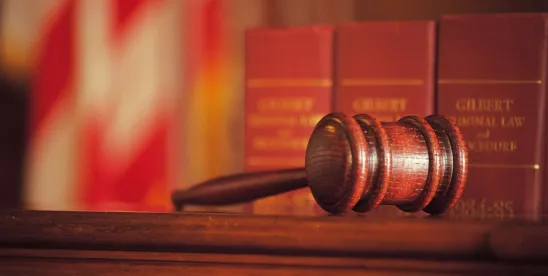On September 22, 2017, the First Circuit Court of Appeals reversed the district court, and overruled its own prior guidance, to hold that a committee of unsecured creditors had the right to be heard in adversary proceedings related to the restructuring of Puerto Rico’s debt. The Court’s decision in Assured Guar. Corp. v. Fin. Oversight & Mgmt. Bd. for P.R. (In re Fin. Oversight & Mgmt. Bd. for P.R) places the First Circuit in the camp of federal circuits, which for now are the majority, that interpret Section 1109(b) of the Bankruptcy Code to provide committees an absolute right of intervention to be heard.
In June 2016, Congress enacted the Puerto Rico Oversight, Management and Economic Stability Act (“PROMESA”) to address Puerto Rico’s public debt crisis. Among other things, PROMESA created a board (the “Board”) to oversee preparation of an annual fiscal plan designed to estimate the government’s revenues and expenditures. PROMESA also gave the Board authority to commence “quasi-bankruptcy” restructuring proceedings, and incorporated all of the Federal Rules of Bankruptcy Procedure and many provisions of the Bankruptcy Code in such proceedings.
In May 2017, the Board filed several restructuring proceedings under PROMESA, which the district court ordered to be jointly administered. On the same day, several bond insurers commenced an adversary proceeding, challenging Puerto Rico’s fiscal plan under both PROMESA and the U.S. Constitution. An Unsecured Creditors Committee (the “Committee”) was appointed and immediately moved to intervene in the adversary proceeding. Relying on the First Circuit’s prior decision in Kowal v. Malkemus (In re Thompson), 965 F.2d 1136 (1st Cir. 1992), the district court held that the Committee was barred from intervening.
The Committee timely appealed, arguing that Section 1109(b) of the Bankruptcy Code, which expressly applied to proceedings initiated under PROMESA, provides an unconditional right for a committee to intervene within the meaning of Federal Rule of Civil Procedure 24.
In its ruling the First Circuit acknowledged that the district court had properly applied the language in Kowal to the case before it. In Kowal, the First Circuit expressly stated in a footnote that Section 1109(b) did not provide a right of intervention under Rule 24. However, the First Circuit recognized that its statement on that issue in Kowal was dicta and was incompatible with Section 1109(b) of the Bankruptcy Code which provides committees the right to be heard in such matters. The First Circuit recognized that, in a 1985 decision, Fuel Oil Supply & Terminaling v. Gulf Oil Corp., 762 F.2d 1283 (5th Cir.), the Fifth Circuit had held that Section 1109(b) does not apply to adversary proceedings. And at least two circuits (the Fourth and Tenth) had, in dicta, suggested agreement with the Fifth Circuit’s position on this issue. However, the First Circuit pointed out that the weight of persuasive authority since Fuel Oil showed a considerable shift towards a view that Section 1109(b) provides a statutory right to intervene in adversary proceedings, citing to decisions from the Second and Third Circuits.
While the First Circuit held that the Committee was entitled to participate in the adversary proceeding, it was careful to point out that this did not mean the Committee was free of all limitations. Instead, the appellate court held that the district court could impose reasonable limitations upon the Committee in order to ensure parties’ rights were protected. For instance, the court suggested that an intervening party could be precluded from pursuing settlement of existing claims, as well as being prohibited from injecting new claims not raised by the original parties.
The First Circuit’s opinion widens a long-standing circuit split as to whether Section 1109(b) provides an absolute right of intervention in adversary proceedings under Rule 24. In the First Circuit, as the court made clear, committees enjoy that right. However, the scope of the right to participate may be limited at the discretion of the presiding court. While this is an important win for the Committee, the decision’s practical effect on Puerto Rico’s restructuring efforts are not yet clear. But, because the court’s holding was not limited to actions brought in connection with PROMESA, litigants in all bankruptcy cases must be mindful of the potential that a committee may involve itself in the controversy as a matter of right in at least three circuits, and litigants should be prepared to advocate limiting or broadening that involvement as applicable.



 />i
/>i

